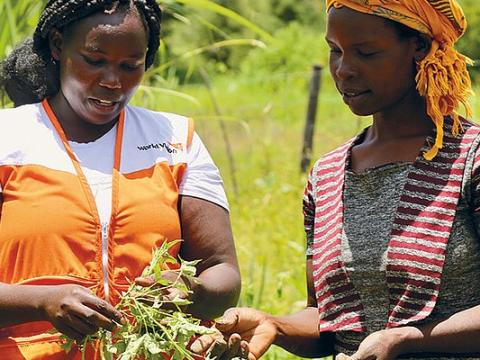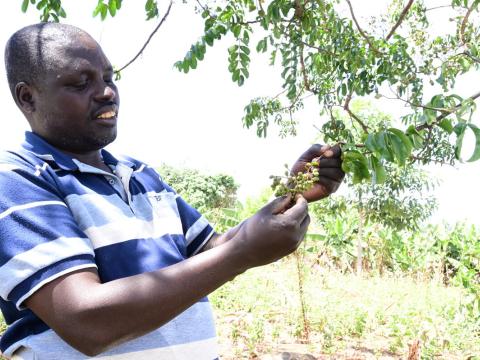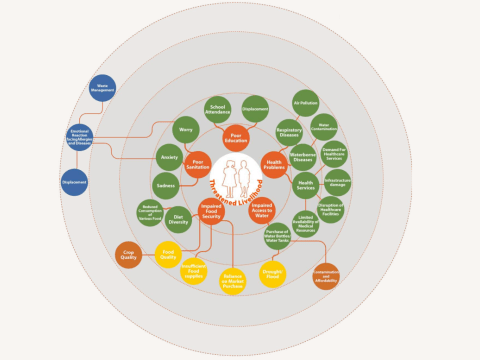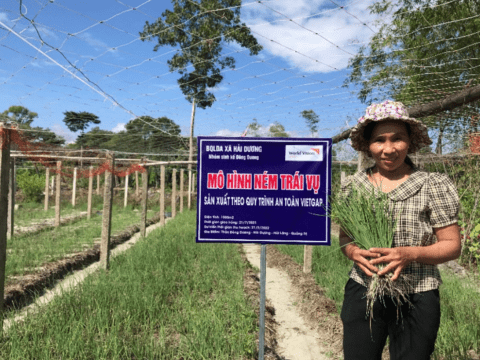
From roots to resilience: FMNR is a winning regreening approach
Lauren Laidlaw lays six ways Farmer Managed Natural Regeneration is empowering communities for global impact
As the world gathers at the UN Climate Change Conference, known as COP29, to address urgent climate challenges, World Vision brings a powerful, community-led nature-based solution to the table: Farmer Managed Natural Regeneration (FMNR). Over the past 25 years, World Vision, our partners, and the communities we have worked with worldwide have refined and proven FMNR as a low-cost, high-impact technique. Together, we have developed a community-centred approach that empowers people to restore degraded lands, strengthen local economies, and foster climate resilience. Now practised in over 40 countries, FMNR has shown its potential to scale from community to continental levels, offering a transformative solution for sustainable development and climate action for children and future generations.
Here are some of the key benefits of FMNR:
1. Community-Led and Cost-Effective FMNR’s community-driven approach puts land restoration in the hands of farmers and local communities. Unlike conventional reforestation, which often requires heavy technical and financial inputs, FMNR can be implemented for just USD$20-50 per hectare. By empowering communities to manage and restore their lands, FMNR strengthens local economies and builds resilience without imposing costly or unsustainable solutions. Recognising FMNR’s value, the World Bank has incorporated it into projects across multiple countries, leveraging its potential for sustainable, community-based restoration. 2. Catalyst for integrated Regreening Communities FMNR serves as a “tip of the spear” in regreening efforts, reawakening existing roots and stumps in previously cleared landscapes. For too long, reforestation has focused on planting saplings—often overlooking that degraded land contains roots capable of natural regrowth. FMNR regenerates these resources, stabilising soil, raising water tables, and creating conditions for other techniques to succeed. This integrated approach avoids the high-risk, resource-heavy approach of planting fragile saplings, positioning FMNR as a true “no regrets” solution.
3. Accelerating Carbon Sequestration and PES Potential FMNR regenerates landscapes faster than traditional reforestation, achieving rapid carbon sequestration by tapping into existing root systems. Scaled widely, FMNR could sequester up to 26% of annual global CO₂ emissions. It also creates opportunities for Payments for Ecosystem Services (PES), aligning with COP29’s focus on sustainable carbon markets and allowing communities to benefit from participating in the carbon economy.
4. Strengthening Livelihoods and Gender Equity FMNR delivers more than environmental benefits—it directly contributes to sustainable livelihoods. In Niger, farmers practising FMNR have seen crop yields increase by up to 50%, improving food security and income. Women play key roles in managing FMNR, contributing to gender equity by increasing women’s economic empowerment and decision-making. FMNR promotes resilience that is inclusive, bringing social and economic benefits alongside environmental restoration—key themes at COP29.
5. Adaptable and Scalable across Diverse Climatic Contexts From semi-arid to tropical regions, FMNR has restored millions of hectares, proving itself adaptable across diverse climatic contexts. Unlike rigid reforestation projects, FMNR’s flexibility allows it to succeed across varied biophysical settings, positioning it as a globally viable solution aligned with COP29’s call for scalable solutions.
6. A proven foundation for sustainable development, World Vision’s 25-year investment in FMNR has proven its effectiveness as both a scalable climate solution and a foundation for sustainable development. By demonstrating FMNR’s adaptability and impact across regions, World Vision has built a model that integrates land restoration with community resilience. Alongside our partners, we believe FMNR is an effective nature-positive solutions to achieving the global goal of restoring 1 billion hectares by 2030. FMNR is a “no regrets” solution, avoiding cycles of planting and dieback, while delivering lasting benefits for communities and ecosystems alike.
FMNR exemplifies how community-driven, scalable, and sustainable climate solutions can be woven into global climate action. FMNR’s journey from concept to proven model offers a beacon of hope for addressing the climate crisis for children and future generations — one that is both globally scalable and locally empowering.
To learn more about World Vision's approach to regreening click here and FMNR itself visit FMNRHub
To learn more about World Vision and FMNR click here and here
Juliet Bell is Global Partnering Lead for the FMNR Scale Up Team for World Vision Australia.


